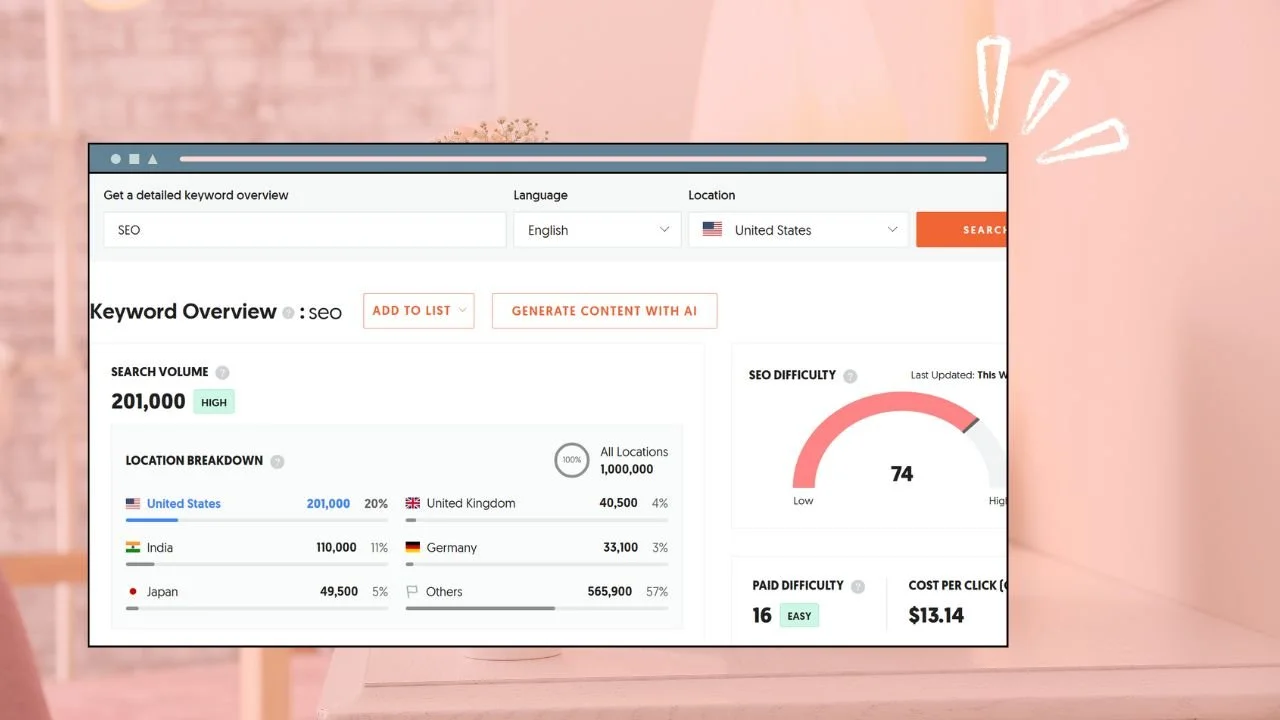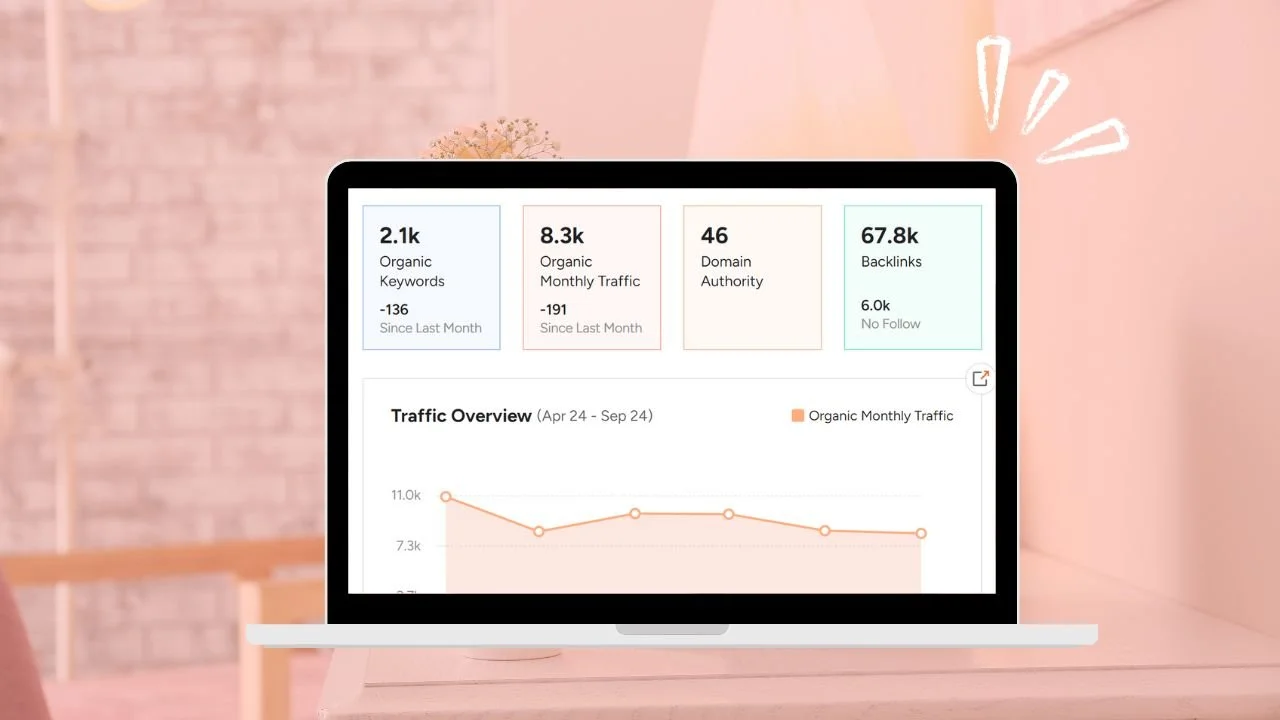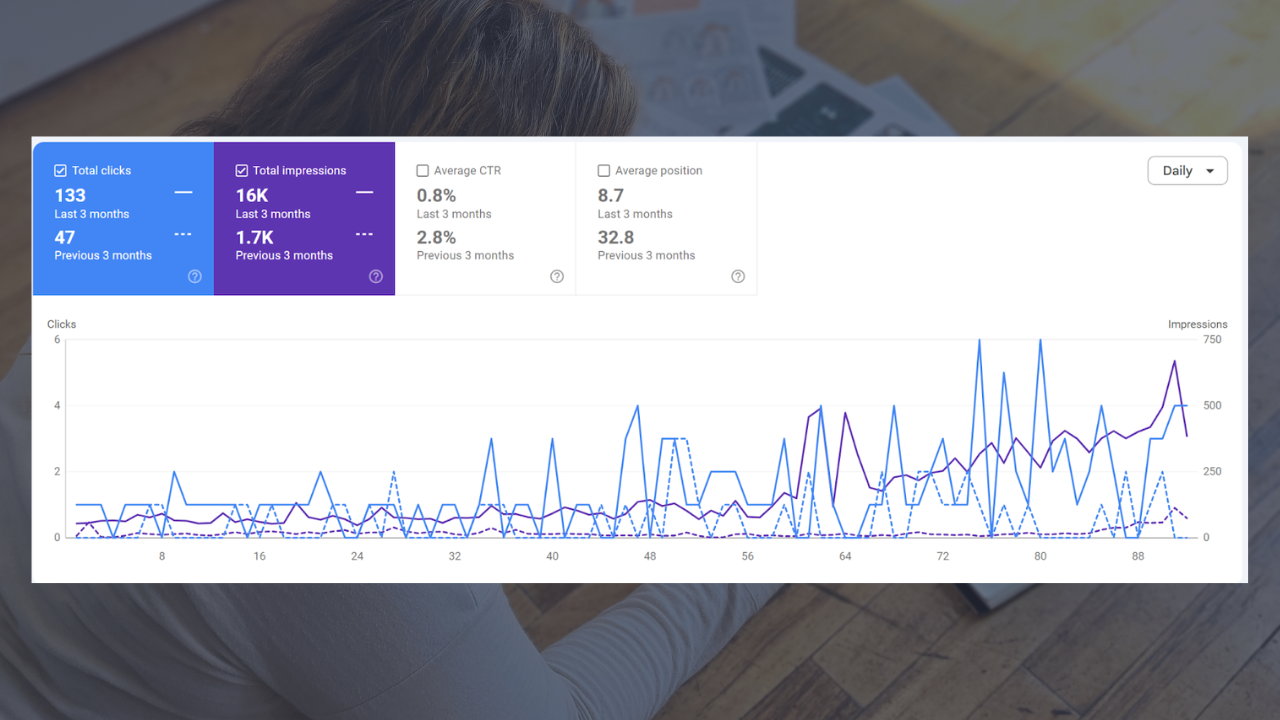How to Choose SEO Keywords: Understanding Keyword Research for Small Businesses
Filed Under

This episode of the Being Better Everyday Podcast dives into part two of our small business SEO series, focusing on keyword research. If you missed part one, which covered what SEO is and the free monitoring tools you should set up, be sure to check that out first (linked here).
I’ll cover the basics of keyword research, why it’s critical for SEO, and how you can find the right keywords to rank your website higher on search engines. I will also discuss popular tools you can use for keyword research, what metrics to pay attention to, and practical steps to incorporate these keywords effectively into your content.
What are Keywords & Why are Keywords Important?
Keywords are specific terms or phrases that tell search engines what your content is about. When someone types a query into Google, the search engine looks for pages that include the same or similar terms. The better your content matches what the searcher is looking for, the more likely your website will appear in the search results.
Understanding keywords isn’t just about getting random traffic. It’s about attracting the right audience—people who are actually interested in what your business has to offer. For small businesses, choosing the right keywords can be the difference between getting lost on page 10 of the search results and appearing on page 1.
Types of Keywords: Short vs. Long Tail
Keywords can be categorized into two types:
Short Tail Keywords:
These are usually one or two words long, like “SEO” or “keyword research.” They have high search volumes but are also extremely competitive, making it harder for smaller websites to rank for them.
Long Tail Keywords:
These are more specific phrases, usually three or more words, such as “how to do keyword research for a small business.” Long tail keywords have lower search volume but are less competitive, making them easier for new or small websites to rank for.
Balancing between these two is key. While short-tail keywords can bring a lot of traffic, they may not convert well because they are too broad. Long-tail keywords, on the other hand, can attract a more targeted audience who are more likely to take action.
Best Free Keyword Research Tools for SEO
When it comes to finding the right keywords, using the right tools is essential. Here are four recommended tools:
-
Ubersuggest: This tool is great for beginners. You get three free searches per day, making it accessible for small business owners who are just starting out. It shows you search volume, keyword difficulty, and other useful metrics.
-
Keyword Surfer: A Chrome extension that provides keyword search data, including cost per click (CPC), search volume, and word count. However, it doesn’t show competitiveness, which is a drawback.
-
Answer the Public: A creative tool that helps generate questions people are asking about a particular topic. This is helpful for building out FAQ sections or writing blog posts that answer common questions.
-
Keywords Everywhere: Another Chrome extension that is free to use, Keywords Everywhere displays useful data such as keyword difficulty right in your browser.
Essential Metrics to Consider in Keyword Research
When conducting keyword research, there are three main metrics to look at:
-
Search Volume: This metric shows how many times a keyword is searched for in a given month. Aim for keywords with a search volume between 100 and 3,000 if your website’s domain authority is below 10. Higher volumes often mean more competition, so balance is crucial.
-
Cost Per Click (CPC): While CPC is more relevant for paid advertising, it’s a helpful indicator of the value of a keyword. Keywords with a CPC above $1 are usually more valuable, suggesting they are more likely to convert because businesses are willing to pay for clicks.
-
SEO Difficulty: Also known as keyword difficulty, this metric shows how hard it is to rank for a particular keyword. A lower difficulty score (below 50) is ideal for small businesses or websites with low domain authority.

Step-by-Step Guide to Effective Keyword Research
-
Identify Long-Tail Keywords: Start by thinking about what specific terms your audience might search for. Use Ubersuggest or Keywords Everywhere to find relevant long-tail keywords with a balance of volume and difficulty.
-
Analyze Competitor Keywords: Look at the keywords your competitors are ranking for and see if there are gaps you can fill. Tools like Ubersuggest allow you to enter a competitor’s domain and see which keywords they are ranking for.
-
Use Answer the Public for FAQs: Enter your primary keyword into Answer the Public to get a list of questions people are asking about that topic. Use these questions to create an FAQ section on your blog or website, which can help you capture more search traffic.
-
Refine Your Keyword List: Prioritize keywords based on search volume, CPC, and difficulty. Aim for a mix of high-volume, lower-difficulty keywords to get the best results.
-
Incorporate Keywords Strategically: Make sure your main keywords appear in your page title, headings, meta descriptions, and throughout the content. However, avoid keyword stuffing—focus on natural integration.
How to find Domain Authority
Domain authority (DA) is a score that predicts how well your website will rank in search engines. Websites with higher DA are more likely to rank for competitive keywords. If you install the Google Chrome Plug-in for Ubersuggest and go to your website you will be able to learn about your own Domain Authority.

Keyword Example: Ranking for SEO Monitoring Tools
In my previous episode, I mentioned a page about SEO monitoring tools that started ranking for the term. The keyword “SEO monitoring tools” has a monthly search volume of 780, making it a good choice for a website with a lower domain authority like mine since at the time of writing this blog my upgraded website is only 3-months old.The key takeaway here is to target keywords that are achievable for your website’s current state while gradually moving up to more competitive terms as your authority increases.
Avoid Common Keyword Research Mistakes
-
Focusing only on high-volume keywords: These are often too competitive, especially for new websites.
-
Ignoring keyword difficulty: If the difficulty is too high, it will be almost impossible to rank.
-
Keyword stuffing: Overloading your content with keywords can harm readability and SEO. Aim for a natural flow.
-
Neglecting long-tail keywords: These can bring in highly targeted traffic with better conversion rates.

Bringing It All Together
To wrap it up, keyword research is an ongoing process that involves choosing the right terms, understanding the metrics behind them, and strategically using them in your content. Don’t just pick keywords because they sound good—make sure they are backed by data and aligned with your audience’s search behavior.
When done correctly, keyword research can help increase your website’s visibility, attract the right audience, and drive valuable traffic to your business. So start exploring tools like Ubersuggest, Answer the Public, and Keywords Everywhere to refine your keyword strategy today.
Ready to Take Control of Your SEO?
SEO might seem overwhelming at first, but once you get a grip on the basics, it can truly transform your small business. Remember, SEO is not a sprint—it’s a marathon. But the time and effort you put in now will pay off in the form of long-term growth and visibility.
Want a full service SEO Audit & Optimization to know you are on the right track to grow your organic traffic and reach? That’s where I come in at P&W Designs! Head over to my SEO Services page to get a full rundown of the service or fill out the inquiry form to schedule a chat!
Leave a Reply




